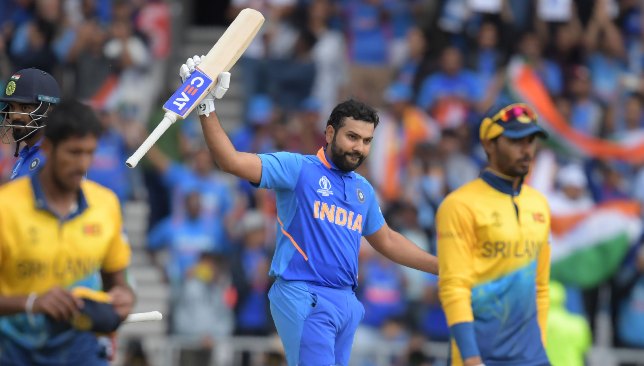
An ICC World Cup medal is one of the most coveted prizes sought by any player entering the modern ODI game.
There are players such as Ricky Ponting, Adam Gilchrist and Glenn McGrath who have laid their hands on a staggering three World Cup titles over the course of their careers. On the other hand, a winners’ medal has remained elusive for some of the greatest players to have graced the game.
Here, we have compiled an XI of the best ODI players in history who have missed out on a World Cup title.
Hashim Amla (South Africa)
Role: Opening batsman
Innings: 178
Runs: 8113
Average: 49.46
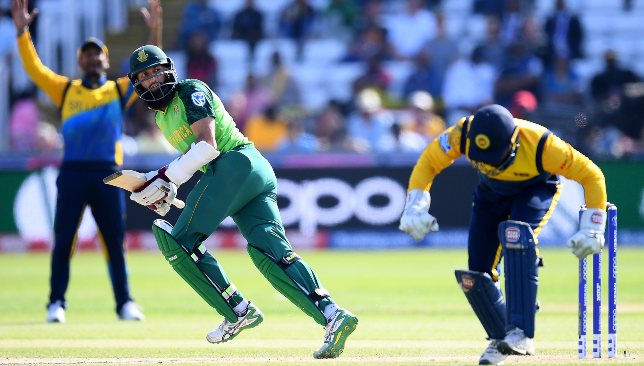
Having first made his mark as a classy Test batsman, there was initial skepticism over Hashim Amla’s ability to succeed in the shorter formats. The right-hander removed those doubts once he was handed a belated ODI debut in 2008.
Becoming the fastest batsman in ODI history to breach the 2,000, 3,000, 4,000 and 5,000-run mark, Amla established himself as one of the most dependable openers in the format.
Unfortunately like every great South African player, a World Cup title has not been forthcoming for Amla. The closest he got to a World Cup medal was in the 2015 edition as the Proteas suffered a dramatic heartbreak in the semi-final against New Zealand.
Rohit Sharma (India)
Role: Opening batsman
Innings: 217
Runs: 9115
Average: 49.27
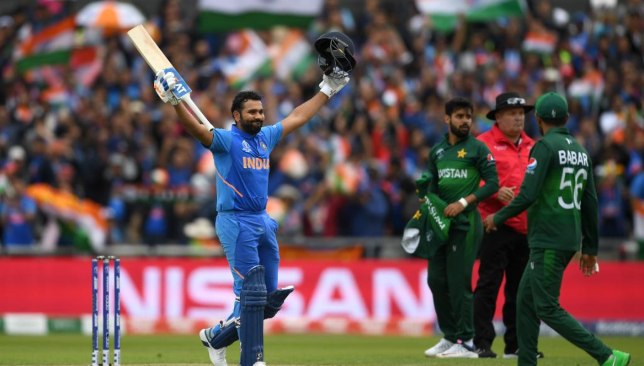
While he did make his ODI debut all the way back in 2007, Rohit Sharma could only watch on the television as India lifted the 2011 World Cup title at his home ground in Mumbai.
But it wasn’t exactly a surprise Rohit was overlooked for selection in 2011, given only started gaining consistency after switching to an opening role in 2012. Since then, the right-hander has faced two semi-final exits with India in the 2015 and 2019 editions.
His tally of five tons in the 2019 tournament in England is the most by any batsman in a single World Cup edition. Unfortunately for Rohit, it might very well be his last tryst with the World Cup considering he will be 36 by the time the 2023 tournament rolls around.
Sourav Ganguly (India)
Role: Top-order batsman
Innings: 300
Runs: 11363
Average: 41.02
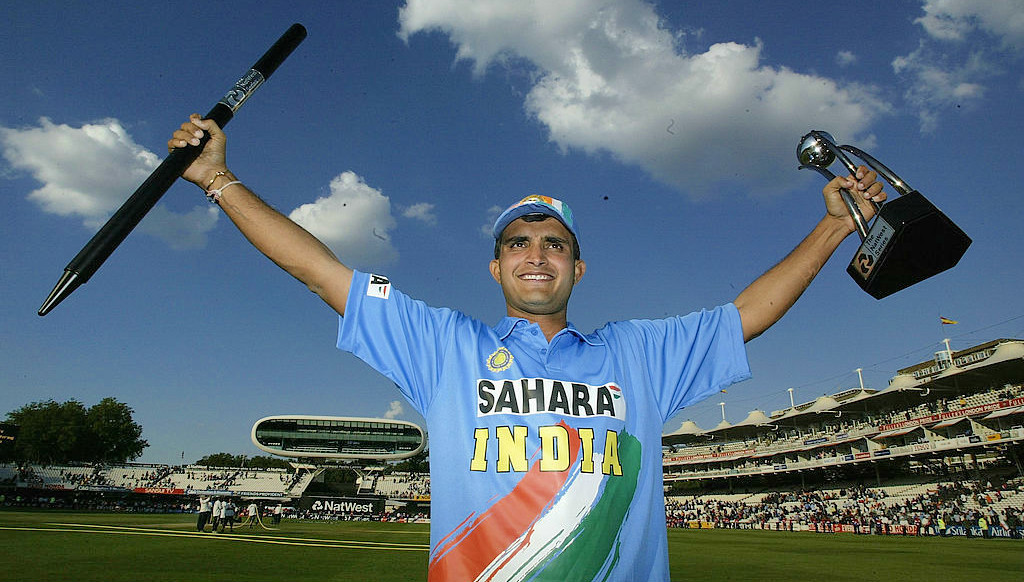
Although he forged one of the most destructive ODI opening partnerships with Sachin Tendulkar, the ‘Prince of Kolkata’ has to drop down to No3 in this XI. There was a time when Ganguly was next best thing to Tendulkar in the ODI format before his career lost steam in the final few years.
His 158-ball 183 against Sri Lanka in 1999 remains the highest score by an Indian in the World Cup and he has registered four tons overall in the quadrennial tournament. The India team captained by him went on a remarkable run to reach the final of the 2003 edition in South Africa.
Sadly for Ganguly and his men, Ricky Ponting’s Australia were simply a class apart in the tournament. He led India again in 2007, where they famously crashed out in the opening stages after suffering a defeat at the hands of Bangladesh.
Jacques Kallis (South Africa)
Role: All-rounder
Innings: 314
Runs/Wickets: 11579/273
Batting/Bowling Averages: 44.36/31.79
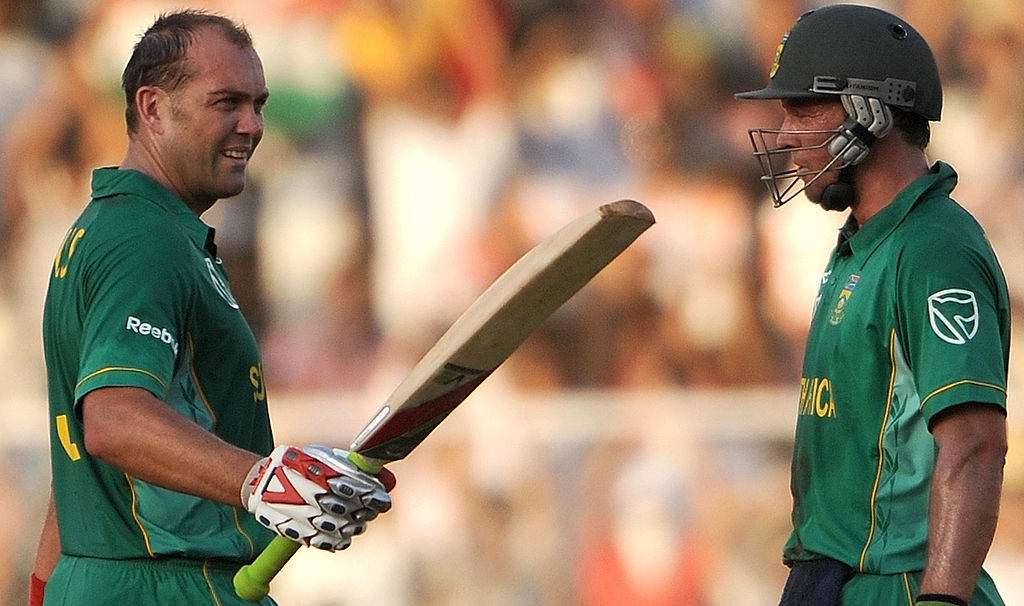
Kallis
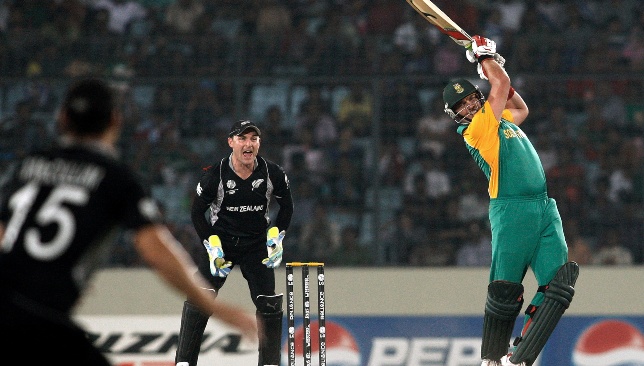
Jacques Kallis could walk into this XI on the basis of his batting alone, but the fact he is an equally capable bowler in his own right makes him a shoe-in.
No South African has scored more runs than Kallis, while Shaun Pollock is the only compatriot to claim more ODI wickets than him. The all-rounder took part in five World Cup campaigns while helping himself to a ton and nine fifties.
Two semi-final defeats at the hands of the Aussies remains the closest Kallis came to a World Cup title, although it will be the loss in the 1999 edition in England which will hurt him the most.
Kumar Sangakkara (Sri Lanka)
Role: Wicketkeeper-batsman
Innings: 380
Runs: 14234
Average: 41.98
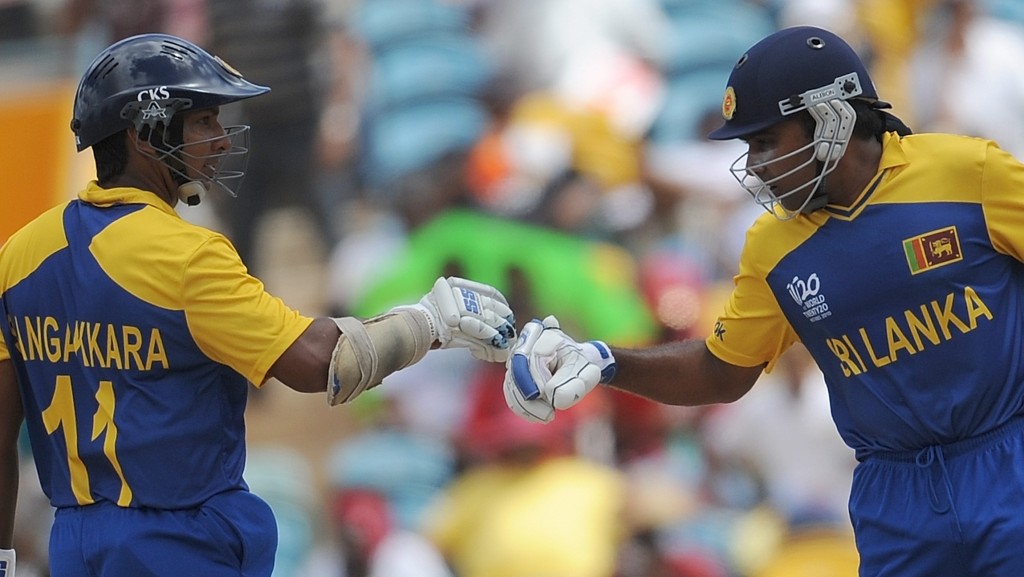
Sri Lanka cricketers Kumar Sangakkara(L) and Mahela Jayawardene punch fists during The ICC World Twenty20 Super 8 match between West Indies and Sri Lanka at the Kensington Oval on May 7, 2010 in Bridgetown, Barbados. AFP PHOTO/Indranil MUKHERJEE (Photo credit should read INDRANIL MUKHERJEE/AFP/Getty Images)
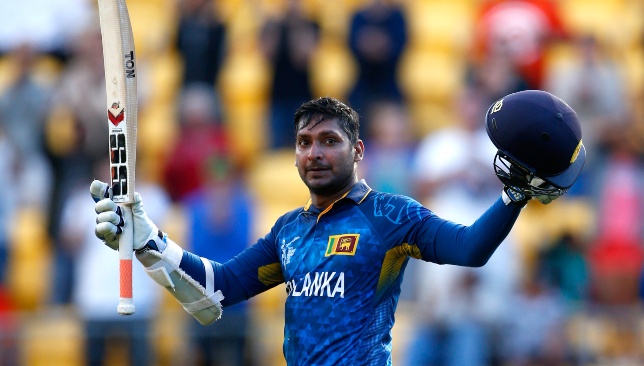
That only Sachin Tendulkar has scored more ODI runs than him in history makes Kumar Sangakkara the most prolific batsman in this XI. Five centuries and seven fifties across four different World Cup editions shows that the left-hander was a man for the big occasion for Sri Lanka.
His record of 54 dismissals from behind the stumps is the most by any wicketkeeper in World Cup history, although Sangakkara would walk into this side as a pure batsman alone. Silverware, though, has not been forthcoming for the Sri Lankan who has twice been on the losing side in a World Cup final.
He is also the third highest run-scorer in World Cup history with a tally of 1,532 runs at an average of nearly 57. Only Tendulkar and Ponting have produced better.
AB de Villiers (South Africa)
Role: Middle-order batsman
Innings: 218
Runs: 9577
Average: 53.50
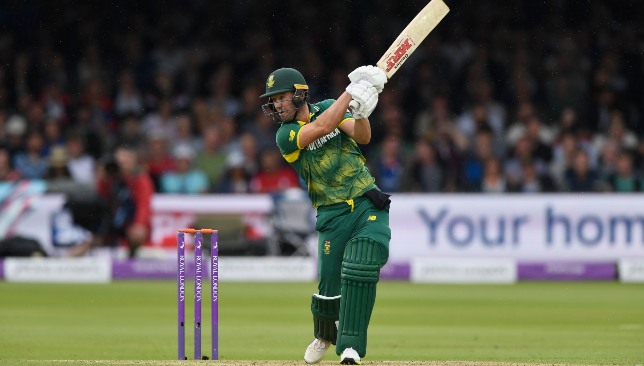
South Africa’s 2019 World Cup campaign turned out to be a miserable one and a big reason for their woes was the absence of AB de Villiers due to a shock international retirement in 2018.
The man nicknamed ‘Mr. 360’ for his ability to score runs off every part of the oval, de Villiers is statistical freak. Not only have his 9,577 runs come at a daunting average of 53.50, they have been scored at an astonishing strike-rate of over 101.
He performs even better when it comes to the World Cups, scoring 1,207 runs at an average of 63.52. His unbeaten 45-ball 65 looked to have sealed a place for South Africa in the 2015 final before New Zealand’s Grant Elliot pulled off a sensational rescue act for the Blackcaps.
Ross Taylor (New Zealand)
Role: Middle-order batsman
Innings: 216
Runs: 8574
Average: 48.44
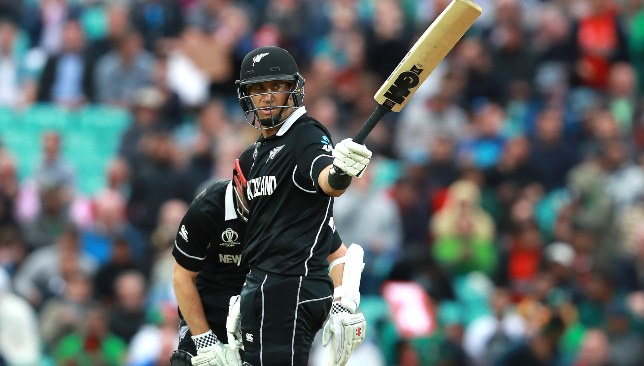
While there is still time for Kane Williamson to surpass his achievements ultimately, Ross Taylor remains the best ODI batsman produced by the Blackcaps.
As New Zealand’s most prolific run-scorer in the format, Taylor has twice reached the World Cup final with the Blackcaps only to stumble at the last hurdle. At 36, the 2019 World Cup was certainly the final time we have witnessed the right-hander in the global showpiece.
The loss to England in the final on the basis of a boundary countback will rankle Taylor even further, given that his fighting half-century had been instrumental in the Blackcaps’ semi-final upset over India.
Shaun Pollock (South Africa)
Role: Bowling all-rounder
Innings: 297
Wickets: 393
Bowling average: 24.50

Bar Shahid Afridi, every other bowler claiming more ODI wickets than Shaun Pollock has gone on to win the World Cup. As an excellent fast bowler in his prime who transitioned into a crafty medium-pacer in the final stages of his career, Pollock’s ODI career economy-rate of just 3.67 is one of his most impressive traits.
A seamer who could bowl straight all the day while getting the ball to nibble both ways, Pollock was also a handy bat down the order for South Africa. The fact that under his captaincy South Africa failed to advance to the Super Six stages of the 2003 World Cup on home soil, remains one of the few blots in an otherwise distinguished career.
Saqlain Mushtaq (Pakistan)
Role: Spinner
Innings: 165
Wickets: 288
Average: 21.78
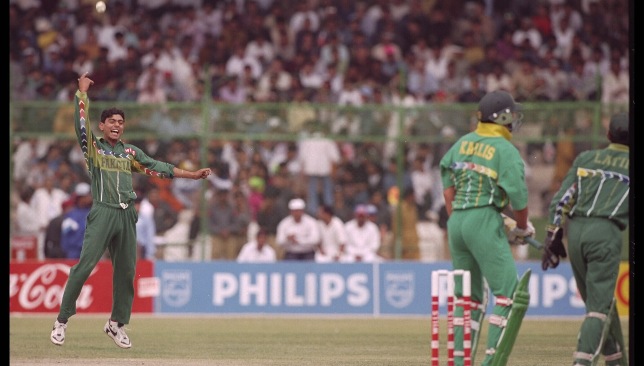
While his compatriot Afridi has more wickets to his name, it is Saqlain Mushtaq who gets the nod as spinner due to his superior peak. He might not have enjoyed the longevity in his career like Afridi, but Mushtaq was truly a force to behold in his brief peak as a spinner.
The quickest player in history to capture 100, 150, 200 and 250 ODI wickets, Mushtaq’s mastery of the ‘doosra’ or googly made him a nightmare proposition for any batsman. One of his two ODI hat-tricks came in the 1999 World Cup against Zimbabwe, while his 69 wickets in 1997 is the most by any bowler in a calendar year.
Pakistan were hammered by Australia in the final of 1999 edition and it remains the closest Mushtaq came to a winners’ medal. Statistically, he has a claim to be the greatest ODI spinner in history.
Allan Donald (South Africa)
Role: Pacer
Innings: 162
Wickets: 272
Average: 21.78
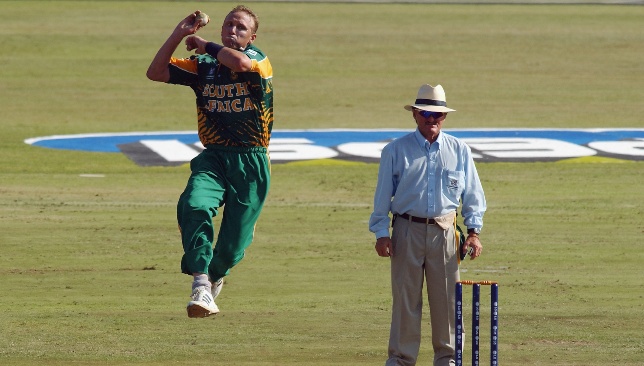
With a bowling average identical to that of Mushtaq, there was no way that Allan Donald was missing out on this XI. His inclusion also ensures that his once fearsome pace partnership with Pollock is replicated.
A strike-rate of nearly 30 is another indicator of Donald’s effectiveness as a fast bowler feared by the best of batsmen. A bowler with searing pace and unwavering intensity, Donald was at one point single-handedly turning South Africa into cricket powerhouse.
Unfortunately for Donald, his most abiding World Cup memory will always remain the 1999 semi-final when he was run-out with just one run to win.
Lasith Malinga (Sri Lanka)
Role: Pacer
Innings: 220
Wickets: 338
Average: 28.87
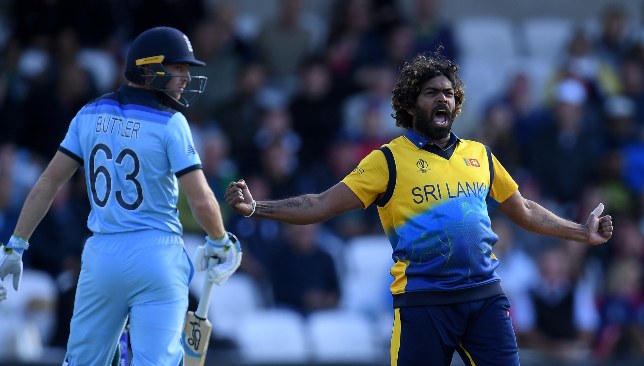
At 36, Lasith Malinga’s best days as a fast bowler are behind him, but he was certainly a devastating prospect in his glorious pomp.
Armed with a slingy round-arm action and blessed with ferocious pace, Malinga’s control over the yorker and various slower deliveries made him the complete package in limited-overs cricket.
His unique feat of four wickets in a row against South Africa in the 2007 World Cup is one which will be hard to match for any bowlers in future editions. With three wickets in succession against Kenya in the subsequent 2011 edition, Malinga remains the only bowler to have claimed two separate World Cup hat-tricks.